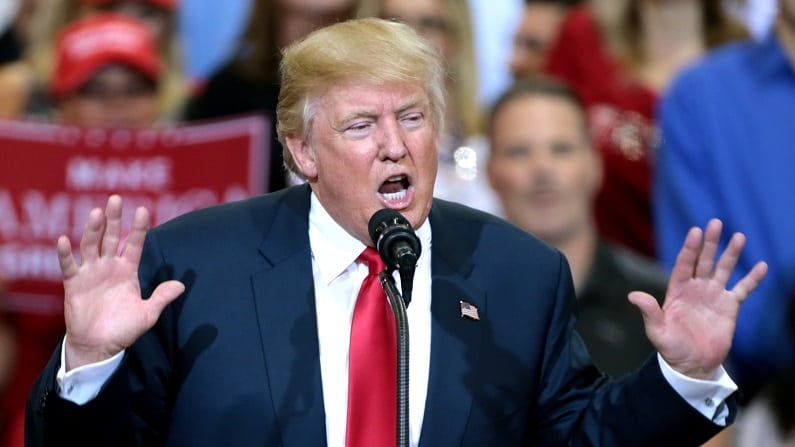Emerging markets could see their fortunes reverse next year despite the overhang of the ongoing US-China trade war which investors expect to get worse before it gets better.
At the G20 summit in Buenos Aires over the weekend US president Donald Trump and Chinese president Xi Jinping agreed to a 90-day ceasefire in their escalating trade war, with the American leader temporarily halting plans to raise tariffs on more than $200bn of Chinese goods from 10% to 25%.
The surprise truce between the two global super powers had an immediate impact on developed stocks on Monday and a particularly profound effect on emerging markets.
The MSCI EM index climbed 2.1% on the news, its strongest day in nearly a month. EM currencies also posted big gains against the dollar, which had weakened following Federal Reserve chair Jerome Powell’s hint at a more dovish path for interest rates.
Investors were far more sceptical about the prospect of a resolution in the near term.
“I think it’s good news, but I don’t think it’s over,” emerging markets legend Mark Mobius told CNBC over the weekend.
Jacob Vijverberg co-manager of the Kames Diversified Monthly Income fund, agrees the trade war between the world’s two largest economies is far from over, predicting “tensions will reach their peak in 2019”.
“No, I don’t think it will get resolved anytime soon,” Yu Zhang manager of the Matthews Asia China Dividend fund told Portfolio Adviser.
“I think everyone knows deep down that trade is not the core issue,” he said. “It is more about how the US readjusts to an environment where you have another rising power in China.”
Short-lived rally
The rally was short-lived however as it became clear that the US and Chinese governments gave very different descriptions of concessions that were made in the initial discussion.
Trump tweeted after the meeting that China had conceded to “start purchasing agricultural product immediately” and “reduce and remove” tariffs on US cars coming into the country, neither of which was confirmed by China’s Ministry of Foreign Affairs.
As this realisation dawned, the S&P 500 went on to have one of its worst intraday sell-offs of the last five years, plummeting 3.2% on Tuesday.
In response, president Trump stepped up his rhetoric again on Tuesday night tweeting:

The US president had already begun to cast aspersions on his ceasefire with president Xi days earlier, questioning whether a “REAL deal” was possible by early March when the next round of trade talks will begin.
“President Xi and I want this deal to happen, and it probably will. But if not remember (…) I am a Tariff Man.”
EM open for business
Emerging market economies could stand to benefit if tensions between the US and China remain unresolved.
Speaking on CNBC’s ‘Closing Bell’ segment Mobius said countries like Brazil and Vietnam which have decent manufacturing capabilities and a region like Turkey, where there has been a decline in the currency, are ideally positioned to do business with China.
China has already purchased three banks in Brazil and had been buying up land in the country, he said.
“You can see their expansion in other parts of the world as a means to diversify their manufacturing and perhaps get entry to the US in an indirect way.”
Funds in the IA Global Emerging Markets sector have been among the worst performers year-to-date. The sector is the second worst performer so far in 2018 with returns of -7.57%, surpassed only by the IA European Smaller Companies (-9.43%). The MSCI EM index is down 4.82% over the same period.
But recently EM funds have been making a comeback particularly India-focused funds which have been aided by a sharp fall in the oil price.
Weak dollar silver lining
Economists are predicting some additional relief for emerging markets from a weaker dollar.
Schroders chief economist and strategist Keith Wade predicts that a peak in US rates and the start of tighter monetary policy elsewhere will both weigh the dollar down in 2019.
“For the emerging markets, a weaker dollar could be the silver lining in the outlook,” he says. “Although an escalation of the trade wars and the prospect of slower global growth does not bode well, a weaker dollar would help ease pressure on the region.”
Brooks Macdonald deputy CIO Edward Park is also predicting softer US growth and the inflationary repercussions from the trade war’s ceasefire will make it harder for the US to raise rates, providing a boon to credit markets and emerging markets equities.
China comeback
Trump’s aggressive trade tactics have had an especially acute impact on China.
Year-to-date the IA China sector is languishing third from the bottom with an average return of -7.44%, just beating the IA Global Emerging Markets sector with -7.64%.
Compare this with 2017 when it finished at the top of the IA’s leader board, up 35.81%, and outperformed the next best sector, UK Smaller Companies, by close to 9%.
Ken Wong Asia equity portfolio specialist at Eastspring Investments says a “full blown trade war” could slice China’s GDP by as much as 1% from its current 6.3% to 5.3% next year. But he says most of the damage that has been done is down to negative sentiment not tariffs.
Over the years emerging market countries, including China, have become less reliant on exports as domestic demand expands thanks to changing demographics.
Only 6% of listed Chinese companies’ revenue is derived from the US, Wong notes.
“We suspect there will be some sort of agreement over the next 12 months because both sides have a lot to lose,” he says.
If 2019 is the year of the weaker dollar, Wong says US flows are more likely to be redirected to Asia over Europe which he says is riddled with more political uncertainty and is generally less stable.







